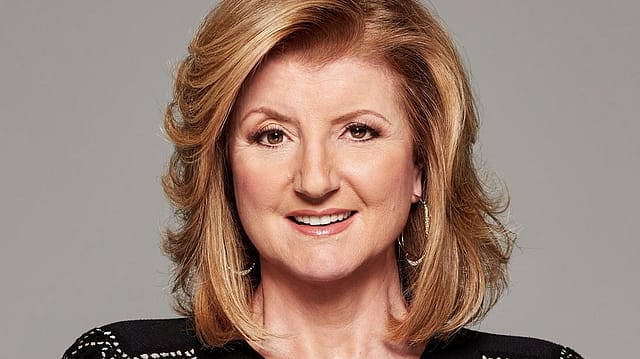Take time to unplug and recharge: Arianna Huffington
ADVERTISEMENT

Stress is an inevitable part of life. But finding a way to stay calm when you know that you’ll be stressed is the key. The healing power of storytelling and hearing from others who have managed to overcome stress is increasingly becoming an important tool for strengthening resilience worldwide. Perhaps, it was this very philosophy that brought together entrepreneurs and executives from the financial, corporate and entrepreneurial ecosystems to the fifth floor of WeWork coworking space in Mumbai’s landmark Bandra-Kurla Complex.
It was 7 p.m. Time for most workers across the country to call it a day after almost eight hours of work. Not at this workspace, a mecca for millennial workers in the city, as they waited for former co-founder and former editor-in-chief of Huffington Post Arianna Huffington, to deliver a talk on importance of self-care, as part of a panel discussion organised by WeWork.
In the fast-moving world of startups, every founder is trying to disrupt. “But the ultimate disruption is the way we work and live,” said Huffington, co-founder and CEO of Thrive Global, a startup targeted at assisting companies to create sustainable change with a focus on employees’ well-being.
An advocate of work-life balance and mental health, Huffington emphasised the need to get good sleep as a key step towards enhancing productivity at work.
"Anyone who has a child knows that you don't just drop children into bed for them to sleep. You need to help them disconnect from the world to ease them into a nap. It is the same with all of us,” said Huffington, in her smooth Greek accent.
Talking about the importance of sleep, she also recollected her conversation with Amazon founder Jeff Bezos, who once told her how lack of sleep made his decisions 5-25% less efficient and that the future of Amazon depends on the quality of his decisions and not the quantity.
She also emphasised the need to take a step back, unplug and recharge despite a busy work schedule.
Sacrificing one’s health is a big price to pay and at Thrive Global, Huffington spends time encouraging people to talk about steps to improve their mental health and personal well-being despite their busy lives. The idea is to “create role models” through people who “stay in the centre even in the eye of the hurricane”, said Huffington who estimated that over 60% millennials suffer from stress in India.
Chronic stress is one of the major causes of depression. A study by National Mental Health Survey (NMHS) in 2015-16 revealed that every sixth Indian needs mental health help and the World Health Organization lists India as one of the most depressed countries in the world. Globally, depression increased by more than 18% between 2005 and 2015, affecting over 300 million people as per WHO estimates.
The advent of technology has blurred the lines between work and life. There is a spillover and one needs to manage it carefully respectfully, said Manoj Adlakha, CEO, American Express Banking Corp, India. He further talked about his efforts to promote three action points -- move more, eat well and stress less –- at his company where the average age of employees is 25 to 28 years.
However, several companies in India continue to monitor punch in and punch out time to track the number of hours that employees spend at work.
“Punching time works for factory workers, not a knowledge worker,” said Vani Kola, managing director, Kalaari Capital, who also features in Fortune India’s Most Powerful Women in business rankings. Companies need to build a culture of trust, accountability and a sense of purpose at the workplace, Kola added.
However, workaholism is still alive. In November this year, Tesla CEO Elon Musk tweeted saying “…nobody ever changed the world on 40 hours a week”, adding that one needs to work 80 hours a week to be able to change the world.
Founder and CEO of Hike Messenger Kavin Mittal, a workaholic himself, said, “It is no secret that it is known that if you're building something that is challenging a status quo, you have to put in the extra effort. A sense of purpose is important.” However, he goes on to add that clocking hours at work is not going to help. It is about the productive hours that one puts in at work.
Talking about his own efforts to be productive at work, Mittal said that he follows a regime of a balanced diet, meditation, six hours of sleep and workout to reduce stress.